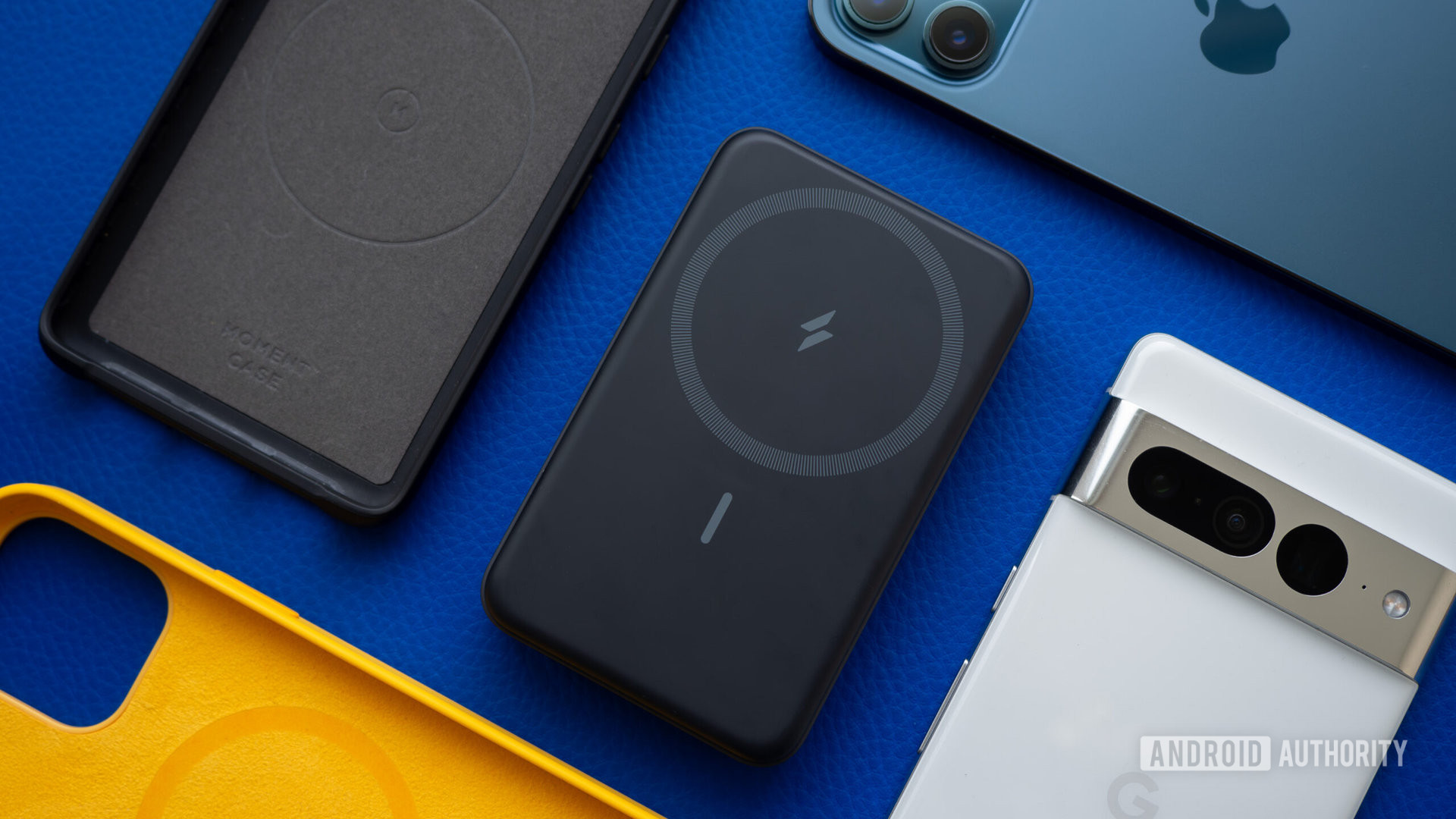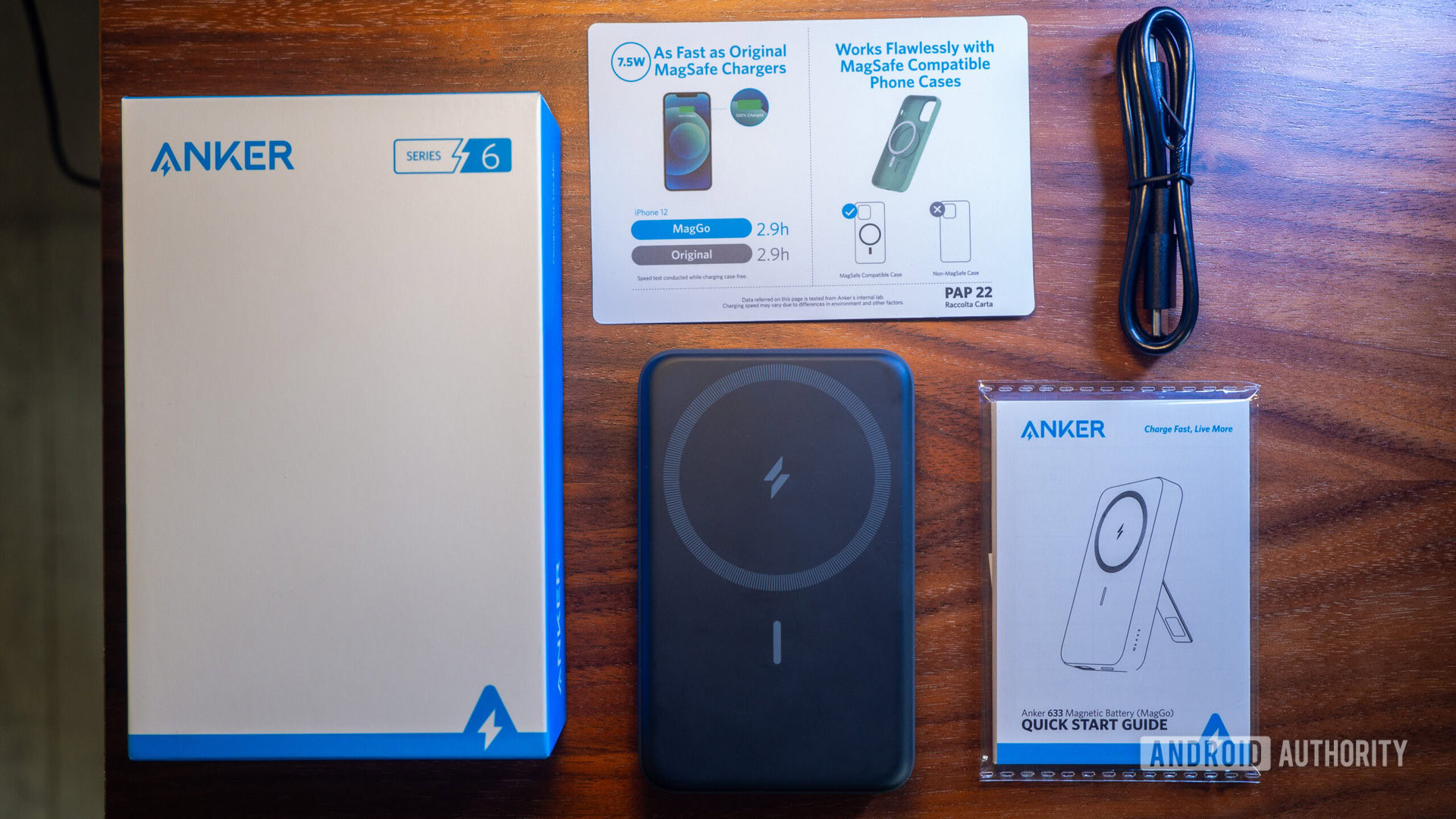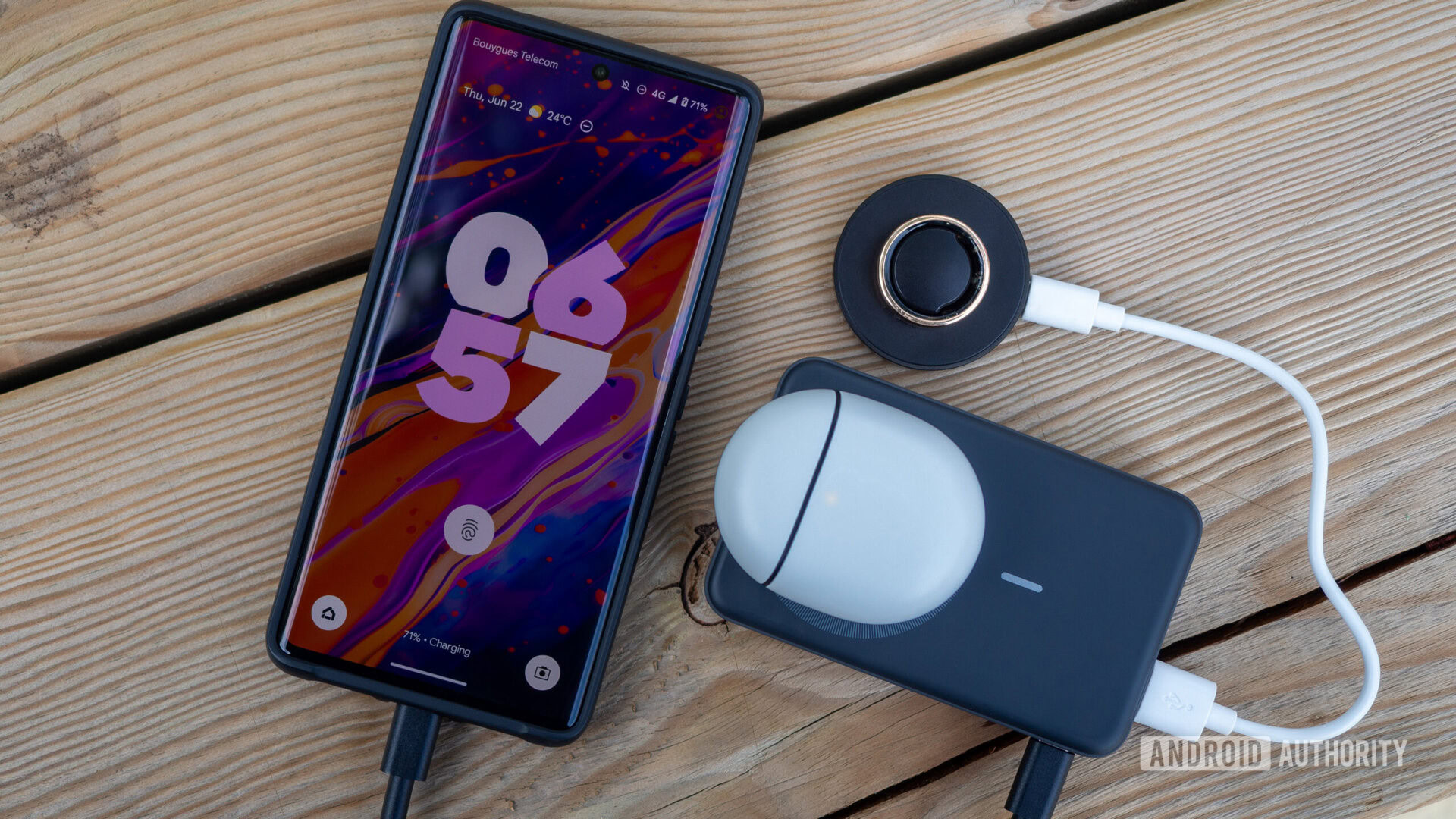Anker’s magnetic wireless battery saved me during a busy vacation
Rita El Khoury / Android Authority
These days, whenever I’m about to fly back home to Lebanon, I spend an hour lining up my chargers, power banks, and USB-C cables, and deciding what my best charging strategy will be. Sure, having a good multi-port wall charger and a car charger is essential, but the country has electricity problems, so portable chargers are non-negotiable too.
The problem is even more complicated when I factor in hopping between four different homes in less than a week, packing and unpacking daily, being on the go most of the day, and frequent electrical blackouts at night. It doesn’t help that I have the most notoriously slow flagship to charge — a Pixel 7 Pro. And so does my husband.
That’s why I’ve had a two-tier portable charging setup over the last year: A large 20,000mAh Baseus battery in my work backpack for my Pixelbook and day-long powercuts, plus a smaller 5,000mAh battery in my pocket for quick, on-the-go charging. The latter was an Anker 622 magnetic wireless battery, but its slow speed and small capacity were starting to wear thin.
Turns out Anker already has a successor that solves all of the problems of the 622 and adds a few more features to boot. I’ve had this upgraded version, the Anker 633 magnetic battery, for four weeks now and chose it as my on-the-go charger in Lebanon. It kept my phone chugging along on the busiest days and I can’t see myself going back to the 622 now.

Anker 633 Magnetic Battery
MagSafe compatibility • Sturdy stand • Powerful output
A powerful MagSafe-compatible magnetic power bank with a useful pop-up stand
The Anker 633 Magnetic Battery is a powerful yet portable 10,000mAh battery with MagSafe compatibility. The power bank features Qi wireless charging, 20W USB-C output and input, and up to 18W of USB-A output. A pop-up metallic stand lets you use the phone or enjoy content on it while it’s charging.

Rita El Khoury / Android Authority
The Anker 633 magnetic battery is a blocky power bank with a magnetized wireless charging pad on top. It’s MagSafe-compatible and works with iPhones as well as Android phones, provided you have a MagSafe adapter. I’ve been using it with the Moment (M) Force case for the Pixel 7 Pro ($39) without issues.
On the back of the battery is a metallic kickstand design, which has been handy when propping up my Pixel during the flight, at a couple of restaurants, and on the dining room table when I was showing some photos to my family. And since it’s an array of circular magnets, you can set the phone in portrait or landscape.
The Anker 633 won’t win any specs wars, but that’s not the goal of this battery; convenience is. Still, it’s all-around better than the Anker 622. You get a larger 10,000mAh capacity, a faster USB-C port that can charge at up to 20W and an additional 18W USB-A port. This comes on top of the 7.5W Qi pad, and all three outputs can be used at the same time. Though total output can’t go over 20W.

Rita El Khoury / Android Authority
In my month with the Anker 633, I’ve never seen it go over 5W of speed when using the Qi pad, even though it’s rated for 7.5W. I’m not sure if it’s inaccuracy from the app I’m using to measure that (Inware), power dissipation between the Anker 633 and the Moment case, or if the 7.5W speed is exclusive to iPhones. But the end result is that I always felt that wireless charging was annoyingly slow on my Pixel 7 Pro but decent enough on my iPhone 12 Pro Max.
That speed deficiency, however, is offset by the sheer convenience of sticking a power bank to my phone and in my pocket with zero wires and tangles. I love that. And I loved it even more when I was zooming in and out of houses, cars, restaurants, weddings, and memorials in Lebanon. Yup, it was a busy “vacation.” I didn’t have to worry about anything else to charge my phone when I needed it and I could keep it on my Pixel for a couple of hours to trickle charge and get me to the next functioning wall plug or car charger.
It depends on the charging method. Wireless charging generates heat and the Anker 633 is no exception. It heats up a bit when wirelessly charging your phone for 30 minutes or more, but that will also depend on whether or not you’re using your phone while charging it, the outside temperature, and the thickness of the case on your phone. Other charging methods may generate some heat, but that is much more rare.
USB-C and USB-A charging are a lot more efficient, obviously, and I saw speeds upwards of 15W on a not-so-empty battery. I’m sure they’d reach 18-20W on an empty battery, but I didn’t dare let my phone die to test that. The only annoyance is that the USB-C port is on the side of the power bank, so the cable sticks out sideways. I’m used to leaving the Anker 622 in my jeans pocket and keeping the type-C cable plugged into it while I use my phone — something I couldn’t do with the Anker 633’s side port unless I had the baggiest of pants with the biggest pockets.
My favorite feature, though, is that I could use two or three of the Anker 633’s charging outputs at the same time. Plug in my Pixel 7 Pro and drop my Pixel Buds Pro on the Qi pad? Easy. My Oura Ring also needs a top-off? Sure, why not. I rarely “needed” to use all three outputs together, but I loved that the convenience was there. At least for low-power accessories. I wouldn’t use this with three phones because they’ll all trickle-charge.

Rita El Khoury / Android Authority
Ultimately, though, the value of the Anker 633 magnetic battery ($69 at Amazon) boils down to how much you prefer convenience over speed and specs. For me, the compromise was repeatedly worth it as I stuck the battery to the back of my phone and saw the charging animation. No muss, no fuss. It was even better when I slid my phone and the battery together out of my pocket, answered calls, sent messages, then slid them back in, all without breaking the charging cycle or messing with cables.
Yes, I often had a type-C cable nearby should I need a quicker top-off from the battery, but that was mostly due to the extreme circumstances of my trip. In my normal Paris life, I make do with the Anker 633 on its own.
What’s the difference between the Anker 622 and Anker 633 magnetic battery?
The two wireless batteries from Anker offer a similar design and feature set, but the Anker 633 (in black) is upgraded in every possible way compared to the Anker 622 (in white). It is thicker and heavier, but it has double the capacity, an additional 18W USB-A port, and faster USB-C charging (20W up from 12W). It can also use all three outputs (USB-A, C, and Qi charging) at the same time. Other improvements include a sturdier kickstand and the option to turn off wireless charging by pressing the power button for two seconds to only use the kickstand function. However, the USB-C port is on the side, not the bottom.
| Anker 633 magnetic battery | Anker 622 magnetic battery | |
|---|---|---|
|
Battery capacity |
Anker 633 magnetic battery
10,000mAh |
Anker 622 magnetic battery
5,000mAh |
|
Qi wireless output |
Anker 633 magnetic battery
Up to 7.5W |
Anker 622 magnetic battery
Up to 7.5W |
|
USB-C charging speed |
Anker 633 magnetic battery
Up to 20W output |
Anker 622 magnetic battery
Up to 12W output |
|
USB-A output speed |
Anker 633 magnetic battery
Up to 18W |
Anker 622 magnetic battery
– |
|
Dimension |
Anker 633 magnetic battery
107 x 66.5 x 18.15 mm |
Anker 622 magnetic battery
105 x 66.5 x 12.7 mm |
|
Weight |
Anker 633 magnetic battery
218g |
Anker 622 magnetic battery
146g |
The Anker 622 is often found at a lower and discounted price, but given all the other upgrades in the Anker 633, I’d recommend the latter.

Anker 622 Magnetic Battery
Compact and portable
MagSafe compatibility
Pop-up stand
For all the latest Technology News Click Here
For the latest news and updates, follow us on Google News.


